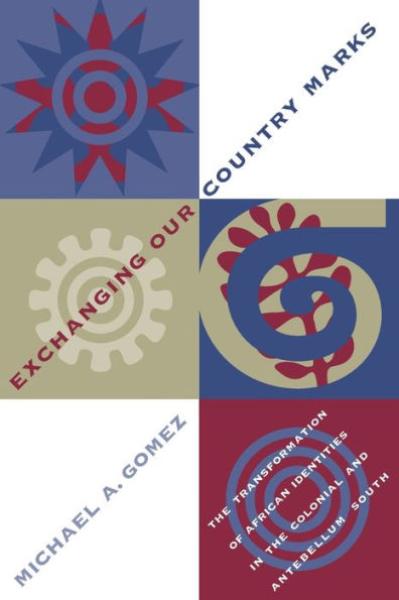Description
defined primarily by the conception of race. He examines transformations in the politics, social structures, and religions of slave populations through 1830, by which time the contours of a new African American identity had begun to emerge.
After discussing specific ethnic groups in Africa, Gomez follows their movement to North America, where they tended to be amassed in recognizable concentrations within individual colonies (and, later, states). For this reason, he argues, it is possible to identify particular ethnic cultural influences and ensuing social formations that heretofore have been considered unrecoverable. Using sources pertaining to the African continent
as well as runaway slave advertisements, ex-slave narratives, and folklore, Gomez reveals concrete and specific links between particular African populations and their North American progeny, thereby shedding new light on subsequent African American social formation.
Exchanging Our Country Marks: The Transformation of African Identities in the Colonial and Antebellum South
Michael A. Gomez is a professor of history at New York University.
[A] conceptual "tour de force". No brief review can do justice to the nuances and complexities of Gomez's argument.
"Southern Cultures"
Gomez gracefully and distinctively enlivens slaves understandings of themselves as Igbo, Muslims, parents, children, and--eventually-- Africans and Americans.
"Journal of Southern History"
[A] conceptual "tour de force," No brief review can do justice to the nuances and complexities of Gomez's argument.
"Southern Cultures"
ÝA¨ conceptual "tour de force." No brief review can do justice to the nuances and complexities of Gomez's argument.
"Southern Cultures"
ÝA¨ rare and creative inquiry into the origins of African identity in the United States from 1526 to 1830.
"Gaither Reporter"
"Gomez gracefully and distinctively enlivens slavesU understandings of themselves as Igbo, Muslims, parents, children, and--eventually--UAfricansU and Americans.
"Journal of Southern History""
[A] conceptual "tour de force." No brief review can do justice to the nuances and complexities of Gomez's argument.
"Southern Cultures"
[A] rare and creative inquiry into the origins of African identity in the United States from 1526 to 1830.
"Gaither Reporter"
Deeply researched in both African and North American sources.
"nternational Journal of African Historical Studies"
Gomez has yoked his admirable grasp of recent advances in African historiography with a subtle and sensitive reading of slavery.
"American Historical Review"
Product Details
- University of North Carol Brand
- Mar 30, 1998 Pub Date:
- 0807846945 ISBN-10:
- 9780807846940 ISBN-13:
- 384 Pages
- 9.2 in * 6.2 in * 0.9 in Dimensions:
- 1 lb Weight:




